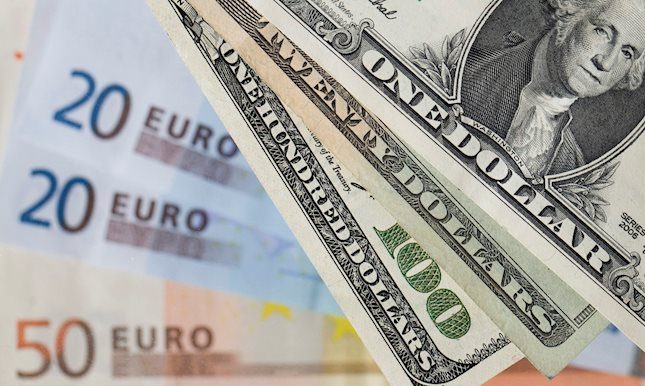- EUR/USD may depreciate due to safe-haven flows amid the escalated Russia-Ukraine conflict.
- ECB member Yannis Stournaras remarked that the Eurozone is nearing a sustainable attainment of its 2% inflation target.
- The US Dollar appreciated due to cautious remarks from Fed officials.
EUR/USD appreciates slightly after registering losses in the previous session, trading around 1.0550 during the Asian hours on Thursday. However, the upside of the pair could be restrained due to safe-haven flows amid rising geopolitical conflict between Russia and Ukraine.
Reuters reported that Ukraine launched a volley of British Storm Shadow cruise missiles into Russia on Wednesday, marking the latest deployment of Western weaponry against Russian targets. Moscow has stated that the use of Western weapons to strike Russian territory far from the border would significantly escalate the conflict.
European Central Bank (ECB) Governing Council member Yannis Stournaras stated on Wednesday that the Eurozone is close to sustainably achieving its 2% inflation target. Stournaras emphasized the responsibility of policymakers to ensure they do not fall short of this goal, according to Bloomberg.
Meanwhile, the EU Financial Stability Review noted that escalating geopolitical tensions and policy uncertainties are intensifying sovereign vulnerabilities while growing global trade disputes heighten the risk of economic shocks.
Since June, the ECB has implemented three rate cuts as inflation edges closer to the 2% target. However, growth forecasts have been revised downward twice. Markets widely expect a 25-basis-point rate cut next month, with a smaller probability of a more substantial reduction.
The US Dollar (USD) gained support from cautious remarks by Federal Reserve (Fed) officials. Boston Fed President Susan Collins stated on Wednesday that while more interest rate cuts are necessary, policymakers should proceed cautiously to avoid moving too quickly or too slowly, according to Bloomberg.
Meanwhile, Fed Governor Michelle Bowman highlighted that inflation remains elevated over the past few months and stressed the need for the Fed to proceed cautiously with rate cuts.
Euro FAQs
The Euro is the currency for the 19 European Union countries that belong to the Eurozone. It is the second most heavily traded currency in the world behind the US Dollar. In 2022, it accounted for 31% of all foreign exchange transactions, with an average daily turnover of over $2.2 trillion a day. EUR/USD is the most heavily traded currency pair in the world, accounting for an estimated 30% off all transactions, followed by EUR/JPY (4%), EUR/GBP (3%) and EUR/AUD (2%).
The European Central Bank (ECB) in Frankfurt, Germany, is the reserve bank for the Eurozone. The ECB sets interest rates and manages monetary policy. The ECB’s primary mandate is to maintain price stability, which means either controlling inflation or stimulating growth. Its primary tool is the raising or lowering of interest rates. Relatively high interest rates – or the expectation of higher rates – will usually benefit the Euro and vice versa. The ECB Governing Council makes monetary policy decisions at meetings held eight times a year. Decisions are made by heads of the Eurozone national banks and six permanent members, including the President of the ECB, Christine Lagarde.
Eurozone inflation data, measured by the Harmonized Index of Consumer Prices (HICP), is an important econometric for the Euro. If inflation rises more than expected, especially if above the ECB’s 2% target, it obliges the ECB to raise interest rates to bring it back under control. Relatively high interest rates compared to its counterparts will usually benefit the Euro, as it makes the region more attractive as a place for global investors to park their money.
Data releases gauge the health of the economy and can impact on the Euro. Indicators such as GDP, Manufacturing and Services PMIs, employment, and consumer sentiment surveys can all influence the direction of the single currency. A strong economy is good for the Euro. Not only does it attract more foreign investment but it may encourage the ECB to put up interest rates, which will directly strengthen the Euro. Otherwise, if economic data is weak, the Euro is likely to fall. Economic data for the four largest economies in the euro area (Germany, France, Italy and Spain) are especially significant, as they account for 75% of the Eurozone’s economy.
Another significant data release for the Euro is the Trade Balance. This indicator measures the difference between what a country earns from its exports and what it spends on imports over a given period. If a country produces highly sought after exports then its currency will gain in value purely from the extra demand created from foreign buyers seeking to purchase these goods. Therefore, a positive net Trade Balance strengthens a currency and vice versa for a negative balance.

 21-11-2024
21-11-2024
